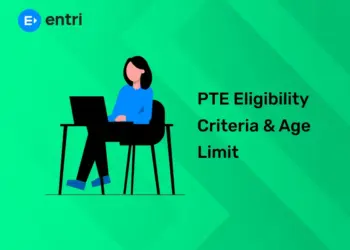Table of Contents
It’s every English student’s dream to speak English fluently like native speakers. Being capable to speak and sound like a native speaker, if you would. A native level of English speaking is hard to acquire. Some people will tell you it’s not feasible if you start learning after childhood.
Speaking English like a native speaker comes with a lot of hard work and determination as we already noted. It implies learning the rules (and when to break them), connecting speech, and understanding collocations and phrasal verbs. It’s no walk in the park, but it’ll take your proficiency to communicate in English to the next level.
Native Speaker of English – An Overview
A native English speaker is the one who grew up speaking English as their first language in a country where English is a native language such as the US, the UK, New Zealand, Canada, Ireland, Australia, and South Africa by definition.
Join our Spoken English program today and communicate with ease!
This indicates that there are many native English accents and dialects to learn, but one thing every native English speaker has in common is their capacity to speak speedily and fluently while easily using collocations and phrasal verbs.
A person who is a native-level English speaker is the one who:
- Understands and can utilize idiomatic phrases and phrasal verbs;
- Is capable of unexpected discussions in English-speaking contexts;
- Can use English tenses and sentence forms effortlessly and in the correct context;
- Can understand the subtle distinctions in tone and pitch.
Why do We Want to Learn to Speak English Like a Native Speaker?
1: Which of the sentences below is grammatically correct?
Learning to speak English like a native speaker is good because speaking fluently makes communication much easier and more comfortable. You’ll be able to present your point of view clearly by using the right words in the right context. In addition, it’ll also become more comfortable for you to understand native English speakers when they speak fluently.
- Be better understood by native speakers: The more you speak like a native speaker, the more comfortable it is for the locals to understand you. You can worry less about misconceptions. If you have to use English every day, life would be much more comfortable this way, wouldn’t it?
- Be more confident using English at work: In the same way, if you have to use English at work, you’ll be much more secure if you sound like a native speaker. It’s not just about the language skills, but also the commitment and hard work needed to get there. By becoming a native-sounding speaker, you’ll show your coworkers that you know how to get results.
- Get jobs needing native-level English: More doors are open and more opportunities are available to you if you can speak English like a native speaker. Jobs that need a native level of English will be open to you and the few people who reach the same level as you. The competition is less intense and highly skilled jobs often pay more.
Spoken English Course for Guaranteed Confidence and Career Growth
Spoken English Course by Entri App: Enhance your communication skills, gain certification, and boost your career with confidence.
Join Now!Tips to Help to Speak English Like a Native
If you want to learn to speak English like a native speaker, concentrate on the following few areas:
-
Get Acquainted with Various English Accents
There are many diverse accents among native English speakers. Someone from New York sounds distinct from someone who grew up in Texas. And of course, you must have heard about the Queen’s English (the standard English of Britain). I’ll tell you right now that not everyone there says like their queen. Then there are the Scots, Welsh and Irish who speak English with various accents.
-
Imitate Native Pronunciation
So now you hold a basic idea of different English accents. But how do you go about actually understanding native pronunciation?
One great place to start is by watching and imitating authentic English videos. These will disclose you to real English pronunciation and speaking techniques. They also offer you the chance to study the speakers’ mouth and lip movements so you can imitate them.
After someone speaks, try breaking the video and then repeating back what they said. Having subtitles on can be convenient to keep track of the words.
Speak confidently and fluently with our Spoken English Course!
-
Learn the Flow of English
Pronunciation is important in English speaking, but it’s not everything. You can pronounce every single word like a native speaker, but still not speak like one. That’s because you even ought to have the right flow.
So, the question is that what exactly makes the flow of English? One crucial element is “connected speech.” This directs to the way the end of one word and the start of the next word sometimes interact in English.
-
Use Slang When You Speak English
“Slang” directs to informal (sometimes vulgar) words and phrases in English. Slang is more common in speech than in writing in English. Slang is also usually distinct in various communities—so the slang in the Southern U.S. is distinct from the slang in England.
But there are some instances of slang that a wide range of English speakers use, which you can understand. For example:
Wanna (Want to)
Hang out (Spend time together)
In a casual setting, a native speaker would say “Do you wanna hang out?” rather than “Do you want to spend some time together?”
If you do hang out, the next day your friend might say, “We had a blast yesterday.” That indicates that he/she had a really fun time. But if he/she tells others that “you drove him/her up the wall,” that indicates he/she was irritated by you.
By learning this type of slang, you’ll immediately sound more fluent and native-level. If you want to speak like an American, try the basic American slang words.
Don’t try to discover slang on the news or in formal speeches. Watch current TV shows or explore vlogs (video blogs) on YouTube. Because slang is regional, you should explore shows/videos set in the region whose English accent you want to speak.
As you begin including slang in your communication, use Urban Dictionary or ask a native speaker to make sure you’re using it perfectly. The best way to learn slang words is to utilize them but remember the context. They should be used in informal surroundings only.
-
Learn English Idioms
English idioms are phrasing whose connotations aren’t clear from looking at the individual words.
The usage of idioms might not be as expected as slang in informal speech. However, native speakers can employ idioms at times and mystify you.
For instance, if you’re in a meeting and your coworker says, “you can’t see the forest for the trees,” you might be confounded. Your discussion has nothing to do with trees or a forest!
That’s because she’s using a typical idiom. “You can’t see the forest for the trees” indicates you’re too interested in the details of a problem to understand the situation as a whole. Maybe you pay too much attention to the logistic matters while not enough on the more major issues like budget or deadlines.
It’s also useful to keep a diary of idioms you learn and their (possible) equivalents in your language. This can make them more memorable. You can also look up idioms in your diary if you attend one, but forget what it means.
Eventually, don’t be afraid to use the idioms. You might not have them correctly fixed the first time but a kind native speaker might help you with the correct usage, and you’ll remember.
Join our Spoken English program today and communicate with ease!
It’s not easy and comfortable to learn English like a native speaker. It’s very hard in fact. However, you can begin today by perfecting your pronunciation and practicing to get a natural flow of speech. Don’t let slang and idioms delay your progress. Plunge in and learn the spoken speech, and you’ll speak like a native speaker when you least expect it.
When you are first learning a language, it can be overwhelming attempting to focus on all the other aspects needed. From vocabulary to grammar, to obtaining the right accent – it often takes a long time to eventually pin down how to talk like a native English speaker. This article will offer an introduction to the best way to do so.
The main purpose of learning a language is usually to be able to communicate more effectively with more people and to engage yourself more easily in a diverse culture. Learning to speak like a native can indicate learning to adopt the tones, intonations, and slang of native speakers which will permit you to engage yourself more easily in that culture.










